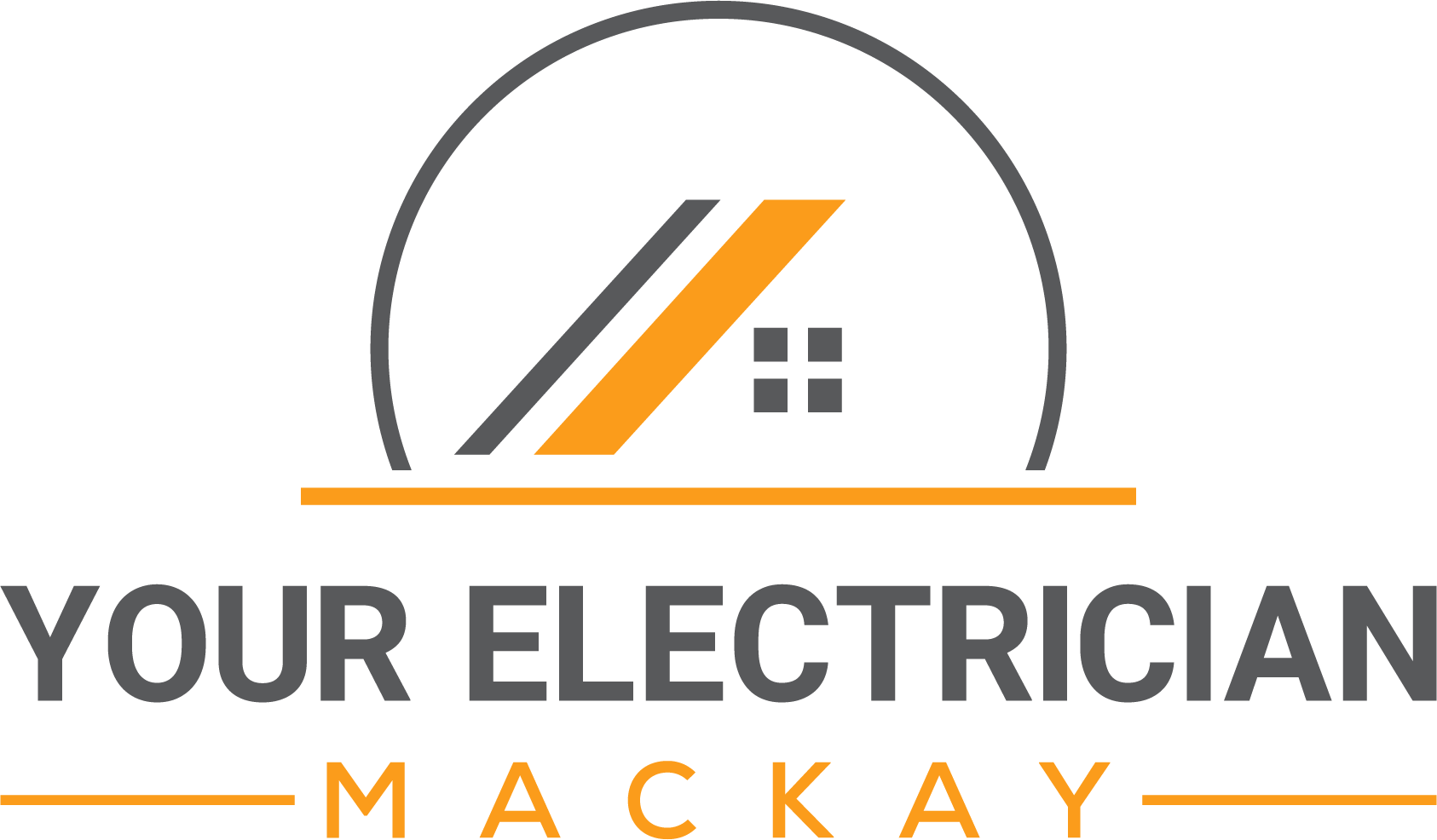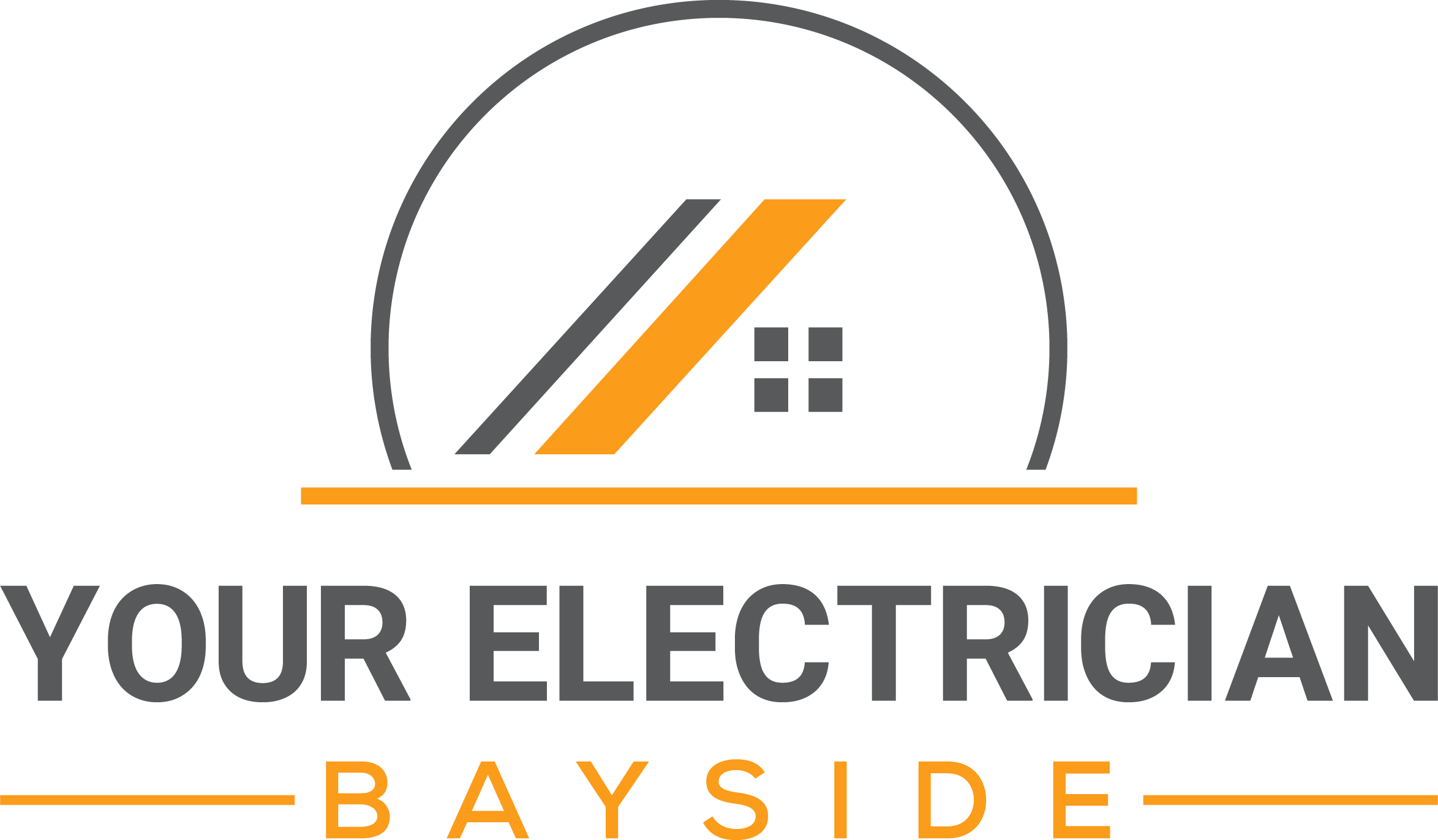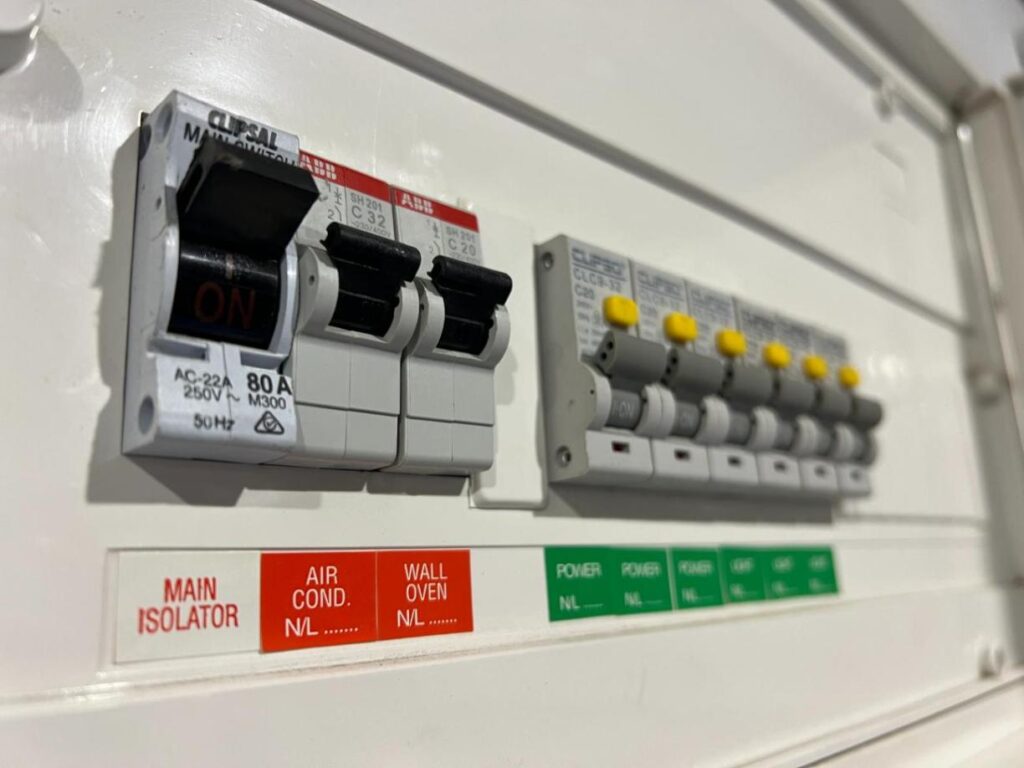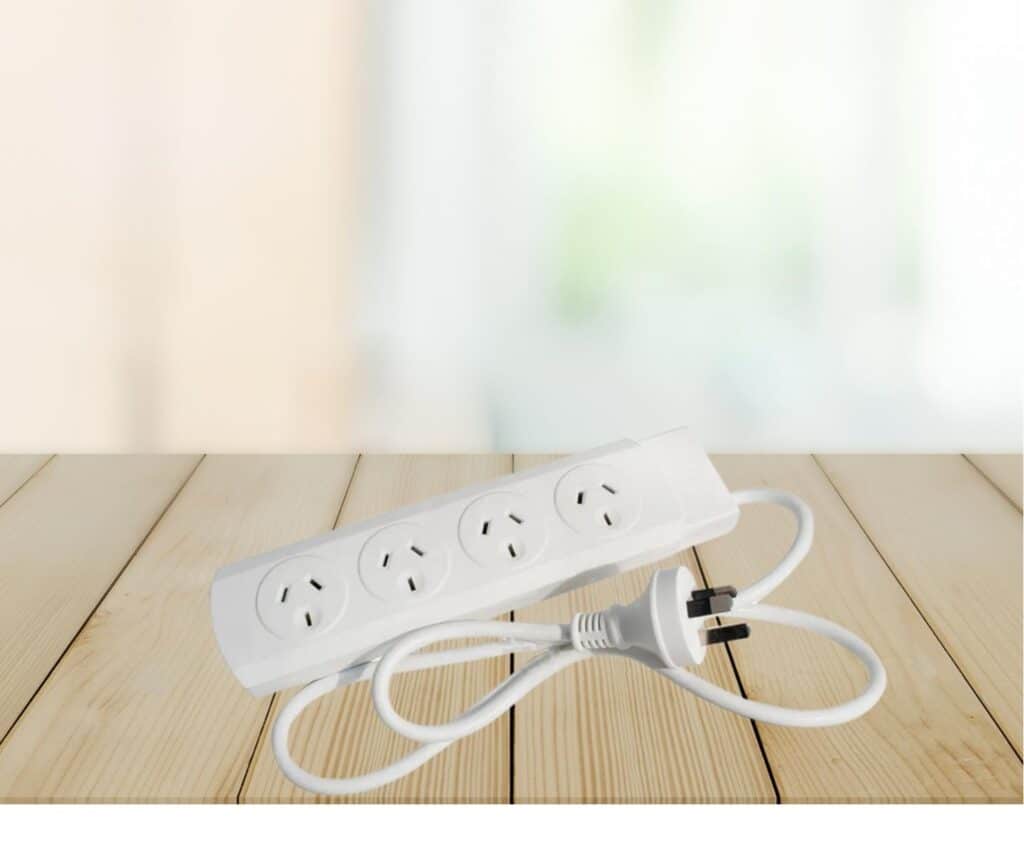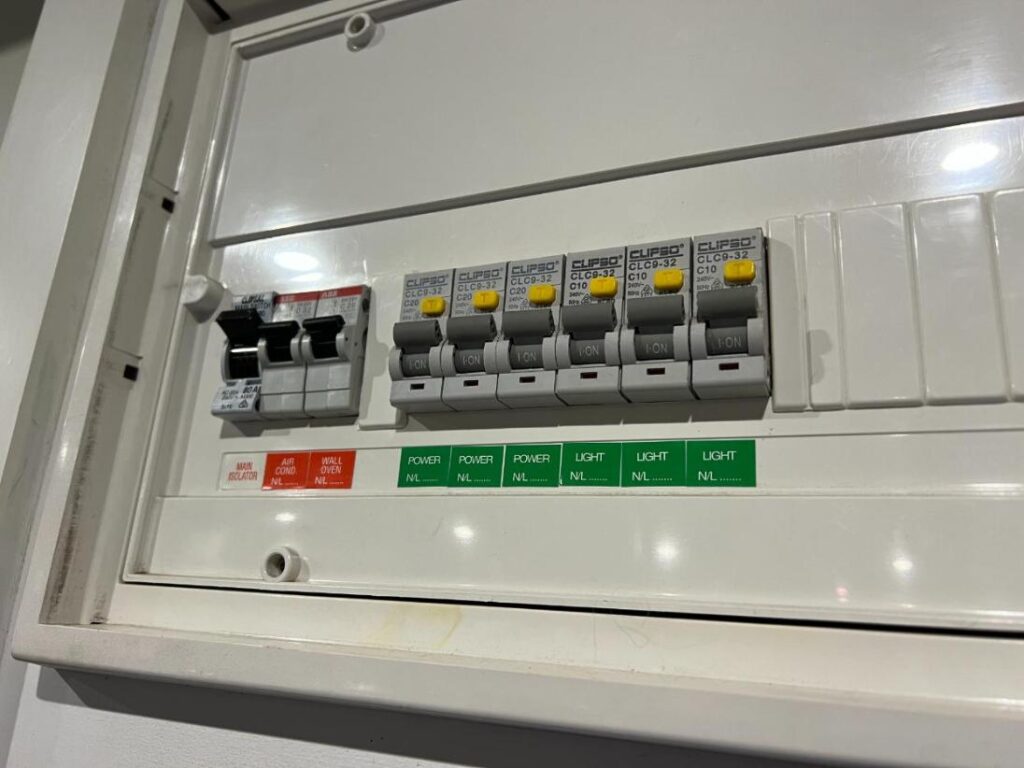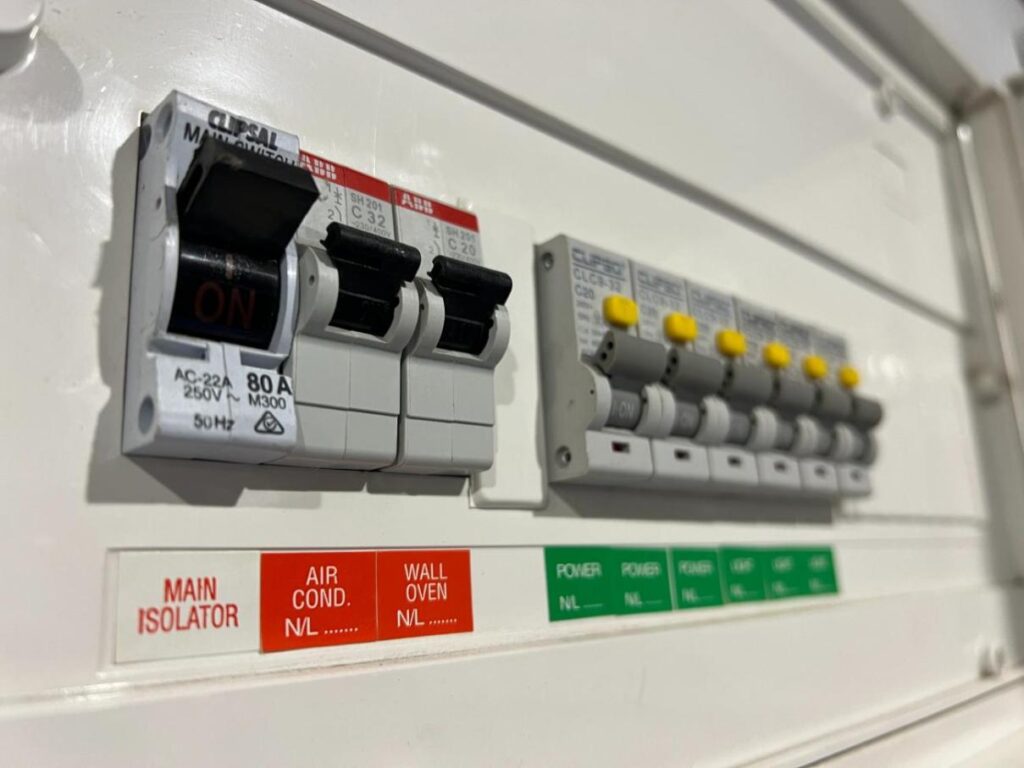The common electrical hazards at home are overloaded power points, frayed cords or wires, water near electrical sources, outdated wiring systems, and unattended electrical appliances. Recognising these dangers is crucial for maintaining a safe home environment.
A professional electrician in Mackay would emphasise the importance of regular electrical inspections to prevent these hazards. Awareness of these risks helps implement safety measures and reduce the likelihood of electrical accidents.
In this blog, we’ll talk more about the electrical hazards prevalent in many homes today.
Overloaded Power Points
Overloading power points is a common but hazardous practice. It occurs when too many appliances are plugged into a single outlet, exceeding its electrical capacity. This can lead to overheating and potentially cause fires.
Use power boards with built-in safety features to prevent this and avoid daisy-chaining multiple extension leads. It’s also wise to regularly check power points for signs of wear or damage.
If any power point feels hot to the touch or emits a burning smell, disconnect all appliances immediately and consult a licensed electrician. Regular checks and maintenance can ensure that power points remain safe and functional.
Frayed Cords or Wires
Frayed cords or wires pose a significant risk of electric shock or fire. Damage can occur from general wear and tear, pets chewing on cords, or improper storage.
You can mitigate this risk by regularly inspecting all cords and wires in your home for any signs of damage. If fraying or exposed wires are found, replace the cord or appliance immediately. Don’t attempt to repair electrical cords with tape, as this is not a safe or long-term solution.
When purchasing new appliances or cords, look for products with durable, high-quality wiring that can withstand regular use.
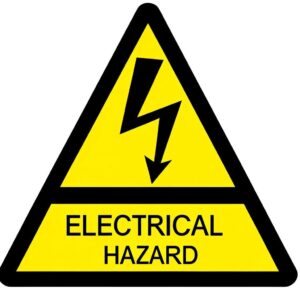
Water Near Electrical Sources
The combination of water and electricity can be deadly, making it essential to keep all electrical sources away from water. This includes avoiding the use of electrical appliances near sinks, bathtubs, or pools.
In areas where water is commonly used, such as bathrooms and kitchens, ensure that all outlets are equipped with residual current devices (RCDs) for added safety. If an electrical appliance does get wet, unplug it immediately and do not use it until it has been checked by a qualified electrician.
Constantly check areas around water sources for any potential electrical hazards.
Outdated Wiring Systems
Outdated wiring systems are not equipped to handle the electrical demands of modern households, leading to risks such as electrical fires or shocks. Signs of outdated wiring include frequent circuit breaker trips, flickering lights, and discoloured power points.
Having your home’s wiring inspected by a professional electrician is crucial. These experts can issue an electrical certificate of compliance, confirming that your electrical system meets current safety standards.
Upgrading your home’s wiring can significantly enhance safety and accommodate today’s electrical appliances and devices.
Unattended Electrical Appliances
Leaving electrical appliances unattended, especially those that generate heat, can lead to fires. Appliances like heaters, irons, and stovetops should never be left on without supervision.
Always turn off these appliances when they are not in use, and keep flammable materials away from heat sources. It’s also important to ensure appliances have adequate ventilation to prevent overheating.
Implementing simple habits like checking the kitchen before going to bed or leaving the house can greatly reduce the risk of accidents involving unattended electrical appliances.
What Should I Do If There’s an Electrical Hazard in My Home?
You should turn off the power to the affected area if there’s an electrical hazard in your home. You can do this at your circuit breaker or fuse box if it’s safe to do so.
Next, keep a safe distance from the hazard and avoid any direct contact, especially with exposed wires or damaged appliances.
Lastly, you should contact a qualified electrician to inspect and rectify the issue, as attempting repairs yourself is dangerous.
